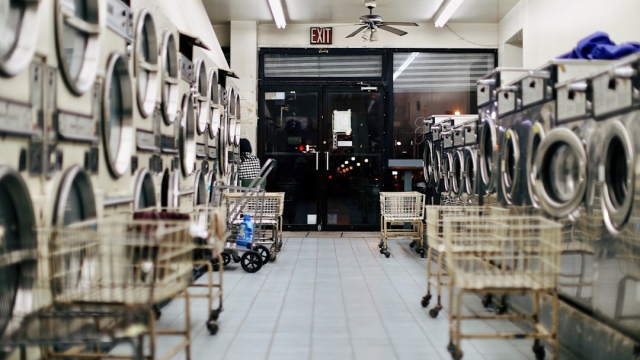
Essential Maintenance Tips for Washing Machines
Maintaining laundry equipment is essential for ensuring its efficiency and longevity. Proper care can prevent costly repairs, extend the life of your machines, and improve the quality of your laundry results. This article will guide you through essential maintenance tips for both washing machines and dryers, signs that indicate when professional service may be necessary, and the benefits of seeking expert assistance.
Essential Maintenance Tips for Washing Machines
Washing machines are vital in any household, and regular maintenance can help avoid breakdowns. Here are some crucial tips to keep your washing machine running smoothly:
1. Regular Cleaning
It is important to clean your washing machine regularly. This includes wiping down the exterior and cleaning the detergent and fabric softener dispensers. Every month, run an empty cycle with hot water and vinegar to eliminate soap scum and mildew build-up.
2. Check Hoses and Connections
Inspect the hoses for any signs of wear, cracks, or leaks. Replace them if you notice any damage. Ensure that connections are tight to prevent leaks, which can lead to water damage.
3. Level the Machine
Ensure that your washing machine is level. An unbalanced machine can cause excessive vibration and noise, potentially damaging internal components. Adjust the feet of the machine as needed.
4. Use the Right Detergent
Always use the appropriate detergent for your washing machine type. High-efficiency (HE) machines require HE detergent, which produces fewer suds and is formulated for lower water levels.
5. Monitor Usage
Avoid overloading your washing machine, as this can strain the motor and cause mechanical issues. Follow the manufacturer’s guidelines for load capacity.
How to Care for Your Dryer: Best Practices
Dryers also require attention to maintain their efficiency. Here are best practices for dryer maintenance:
1. Clean the Lint Trap
After every load, clean the lint trap to prevent lint build-up. This not only improves drying efficiency but also reduces the risk of fire hazards.
2. Ventilation Check
Ensure that the dryer vent is clear of obstructions. A clogged vent can cause longer drying times and increase energy consumption. Periodically check and clean the vent to allow for proper airflow.
3. Inspect the Drum
Check the dryer drum for any foreign objects that may have been left behind from the laundry. Items like coins or loose buttons can damage the drum and cause noise.
4. Schedule Professional Cleaning
Consider scheduling professional cleaning for your dryer and vent system at least once a year. This helps maintain optimal performance and safety.
Signs Your Laundry Equipment Needs Professional Service
Being aware of potential issues can save you from costly repairs. Here are common signs that indicate your laundry equipment may need professional attention:
1. Unusual Noises
If your washing machine or dryer is making strange noises, it could indicate a problem with the motor or other internal components.
2. Poor Performance
If clothes come out of the washing machine still dirty or damp from the dryer, it may signal a malfunction that requires expert inspection.
3. Leaking Water
Any signs of water pooling around your washing machine or dryer should be addressed immediately, as this can lead to further damage or mold growth.
4. Error Codes
If your machine’s display shows error codes, consult the user manual for guidance. Persistent error codes often require professional service to diagnose and repair.
Conclusion: The Value of Professional Care
Investing in laundry equipment maintenance can significantly enhance the longevity and performance of your machines. While regular upkeep is essential, enlisting professional services can provide a deeper level of care. Experts can perform thorough inspections and repairs that go beyond basic maintenance, ensuring your laundry equipment operates at peak efficiency. For those interested in learning more about professional support, various services are available that specialize in laundry equipment maintenance. These services can prevent minor issues from escalating into major repairs, ultimately saving you time and money.
| Maintenance Task | Frequency | Notes |
|---|---|---|
| Clean lint trap | After each load | Critical for safety |
| Inspect hoses | Monthly | Replace if damaged |
| Run clean cycle with vinegar | Monthly | Helps prevent odors |
| Professional inspection | Yearly | For optimal performance |
In summary, effective laundry equipment maintenance involves both routine care and professional services to ensure your appliances remain in excellent condition for years to come.




